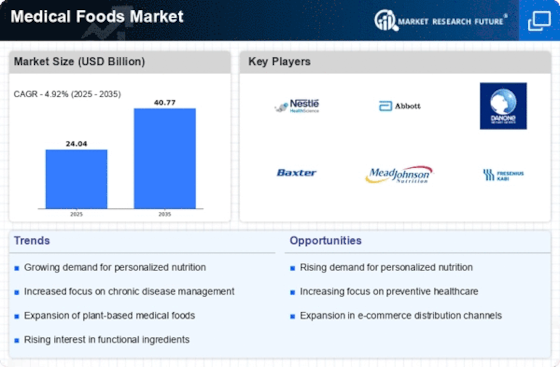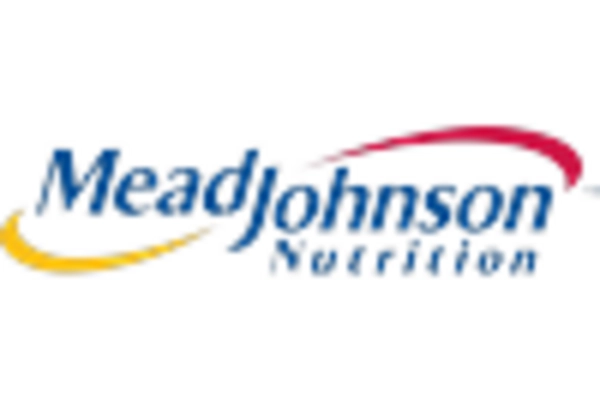Market Analysis
In-depth Analysis of Medical Foods Market Industry Landscape
Micronutrient deficiency remains a pervasive global health concern, affecting nearly one-third of the world's population. With over 2 billion individuals worldwide grappling with micronutrient malnutrition, prevalent deficiencies include vitamin A, iron leading to anemia, and iodine-related diseases. This issue spans across diverse population groups and geographical regions, impacting not only underdeveloped countries but also individuals in industrialized nations. In 2019, the World Health Organization reported that the global prevalence of anemia in women of reproductive age exceeded 29.9%, translating to over half a billion women aged 15-49 years. The prevalence was 29.6% in non-pregnant women and 36.5% in expectant women. Consequently, the escalating global nutritional deficiency has spurred an increased demand for medical foods from both patients and healthcare professionals. Medical foods, particularly those incorporating prebiotics and probiotics, are gaining significant traction due to the associated health benefits they offer. Probiotics contribute to the establishment of a beneficial microbiome within the body, crucial for enhancing metabolic processes. The surge in sales of prebiotic and probiotic-based foods exemplifies their growing popularity. For instance, Yakult Honsha Co. Ltd., a Japanese supplier and manufacturer of probiotic drinks, distributed a staggering 373 thousand bottles of probiotic drinks daily in the United States during the first half of 2019. Additionally, there has been a notable shift in consumer behavior towards healthier diets and nutritious foods, driven by research linking certain food ingredients to potential health advantages. This burgeoning demand has propelled the global market for medical foods, with a particular focus on compounds labeled as "prebiotic" and "probiotic." Recent research has unveiled the potential benefits of prebiotics, with implications for human and animal health. These benefits span various health aspects, including the gastrointestinal tract (GI), obesity, type 2 diabetes mellitus, irritable bowel syndrome, inflammatory bowel disease, cardiovascular diseases, bone health, and neurological disorders such as anxiety, depression, and cognitive deficiency. As consumers increasingly prioritize health-conscious choices, the demand for medical foods, especially those integrating prebiotic and probiotic components, is poised to continue its upward trajectory, shaping the landscape of nutritional interventions globally.


















Leave a Comment